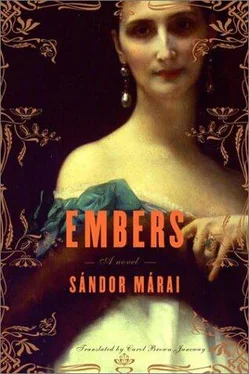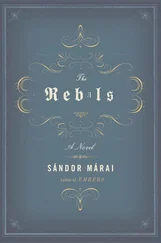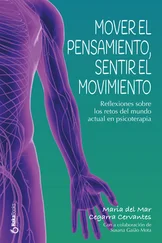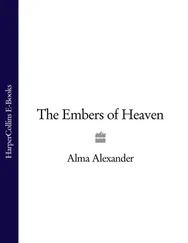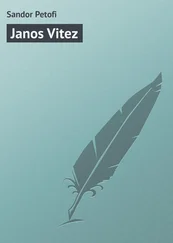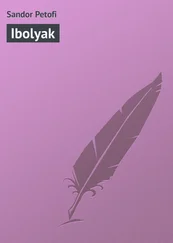“That is how we were,” he says simply. “Gradually I came to understand a part of what had gone on. There was the music. There are certain elements that recur in people’s lives, and music in my life was one.
Music was the bond between my mother, Krisztina, and you. It must have spoken to you in some way that is beyond words or actions, and it also must have been the conduit through which you communicated with each other-and this conversation, this language of music which the three of you shared, was inaudible to us others, to my father and me. That is why we were lonely even when we were with you. But because music spoke to both you and Krisztina, you could continue to communicate with each other even after all conversation between her and me had been silenced.
I hate music.” His voice rises, and for the first time this evening he speaks with a hoarse intensity. “I hate this incomprehensible, melodious language which select people can understand and use to say uninhibited, irregular things that are also probably indecent and immoral. Watch their faces and see how strangely they change when they’re listening to music. You and Krisztina never sought out music-I do not remember you ever playing four-handed together, you never sat down at the piano in front of Krisztina, at least not in my presence. Evidently her sense of tact and shame restrained her from listening to music with you while I was there. And because music’s power is inexpressible, it seems to carry a larger danger in that it has the power to arouse the deepest emotions in people who come together to listen to it and discover that it is their fate to belong to each other. Do you not agree?” “Yes, I do,” says the guest. “That eases my mind,” says the General politely. “Krisztina’s father also thought so, and he really was a connoisseur of music. He was the only person to whom I once, just once, spoke about all this, about music, about you and Krisztina. He was already very old; he died shortly afterwards. I had returned from the war. Krisztina had already been dead for ten years. Everyone who had ever mattered to me-my father, my mother, you, Krisztina-was gone. The only two people still alive were Nini, my nurse, and Krisztina’s father, both of them with that remarkable strength and indifference that old people have, and some mysterious purpose still in life … like the two of us today. Everyone was dead, I myself was no longer young, more than fifty years old, and as lonely as that tree in the clearing in my forest, the one left standing when a storm felled all the surrounding timber on the day before war broke out. That one tree remained standing in the clearing, near the hunting lodge. Now, almost fifty years later, a new forest has grown up around it. It, too, is one of the ancients, after an act of will, which nature calls a storm, destroyed everything that had once surrounded it. And out of sheer will, inexplicably, the tree is still alive. “What is its purpose? … It has none. It wants to stay alive.
Maybe life and every living thing have no other purpose than to live as long as possible and renew themselves. So I came back from the war, and I talked to Krisztina’s father. What did he know about the three of us?
Everything. And he was the only one to whom I ever told everything that was possible to tell. We sat in his dark room, surrounded by old furniture and instruments, there were bookshelves and cupboards bursting with scores, music fixed in sign language, trumpet blasts in print, drum rolls on paper, all the music in the world was lying silently in wait in that room, which smelled so old, as if all human life had been sucked out of it … He listened to me, and then he said, ‘ do you want?
You survived.’ He spoke like a judge pronouncing sentence and also bringing an accusation … staring half-blind into the room; he was already very old, over eighty. Then I understood that a survivor has no right to bring a complaint. Whoever survives has won his case, he has no right and no cause to bring charges; he has emerged the stronger, the more cunning, the more obstinate, from the struggle. Just as we have,”
he says dryly. They measure each other in a glance. “Then he died, too, Krisztina’s father.
There was only my nurse and you, somewhere out there in the world, and this castle, and the forest. “I had also survived the war,” he says with satisfaction. “I didn’t seek out death, I never went to meet it: that is the truth, there’s no other way I can say it. Evidently I still had things I wanted to settle,” he continues reflectively. “People were dying all around me, I have seen every variety of death, and sometimes I was amazed at its endless possibilities, for death has its element of fantasy, just as life does. By official count, ten million people died in the war. A world-engulfing fire had broken out and blazed and roared until one sometimes thought that all personal doubts and questions and struggles must be entirely consumed in it … but that was not the case.
In the midst of this immense human agony, I knew that I still had something private to settle, and that is why I was neither a coward nor a hero, as the book says; I was calm both in storm and in battle, because I knew that nothing bad could happen to me. And one day I came home from the war, and then I waited. Time passed, the world has exploded in a new conflagration and I am certain that it is the same torch as before that has suddenly flamed up again … and what smouldered on in my heart was the question that neither the soot nor the ashes of time and war could cover. People by the millions are dying again, and yet you found your way from that far bank where you belong and through this world gone mad to come home and settle the things with me that we could not settle forty-one years ago. Such is the force of human nature-it must provide or receive an answer to whatever is the defining question of a lifetime. That is why you have come back, and that is why I have waited for you.
“Perhaps this world is coming to its end,” he says quietly, drawing an arc through the air with his hand. “Perhaps lights are going out allover the world just as they did today across this little part of it; perhaps some elemental event has taken place that is not merely the war, but something more; perhaps something has found its time in us as well, and now it’s being settled with steel and fire, where once it was settled with words. There are many signs … Perhaps,” he says matter-of-factly.
“Perhaps this entire way of life which we have known since birth, this house, this dinner, even the words we have used this evening to discuss the questions of our lives, perhaps they all belong to the past. There’s too much tension, too much animosity, too much craving for revenge in us all. We look inside ourselves and what do we find? An animosity that time damped down for a while but now is bursting out again. So why should we expect anything else of our fellow men? And you and I, too, old and wise, at the end of our lives, we, too, want revenge … Against whom? Each other? Or against the memory of someone who is no longer with us? Pointless. And yet it burns on in our hearts. Why should we expect better of the world, when it teems with unconscious desires and their all-too-deliberate consequences, and young men are bayoneting the hands of young men of other nations, and strangers are hacking each other’s backs to ribbons, and all laws and conventions have been voided and instinct rules, and the universe is on fire? … Revenge. I came back from a war in which I could have died, yet didn’t, because I was waiting for my opportunity to take revenge. ‘?’ you may ask. ‘ kind of revenge?’ I can see from your face that you do not understand this need.
‘ revenge is still possible between two old men who are already waiting for death? Everyone is dead, what point is there in revenge?’ you seem to be saying. And this is my answer: Yes-revenge.
Читать дальше
